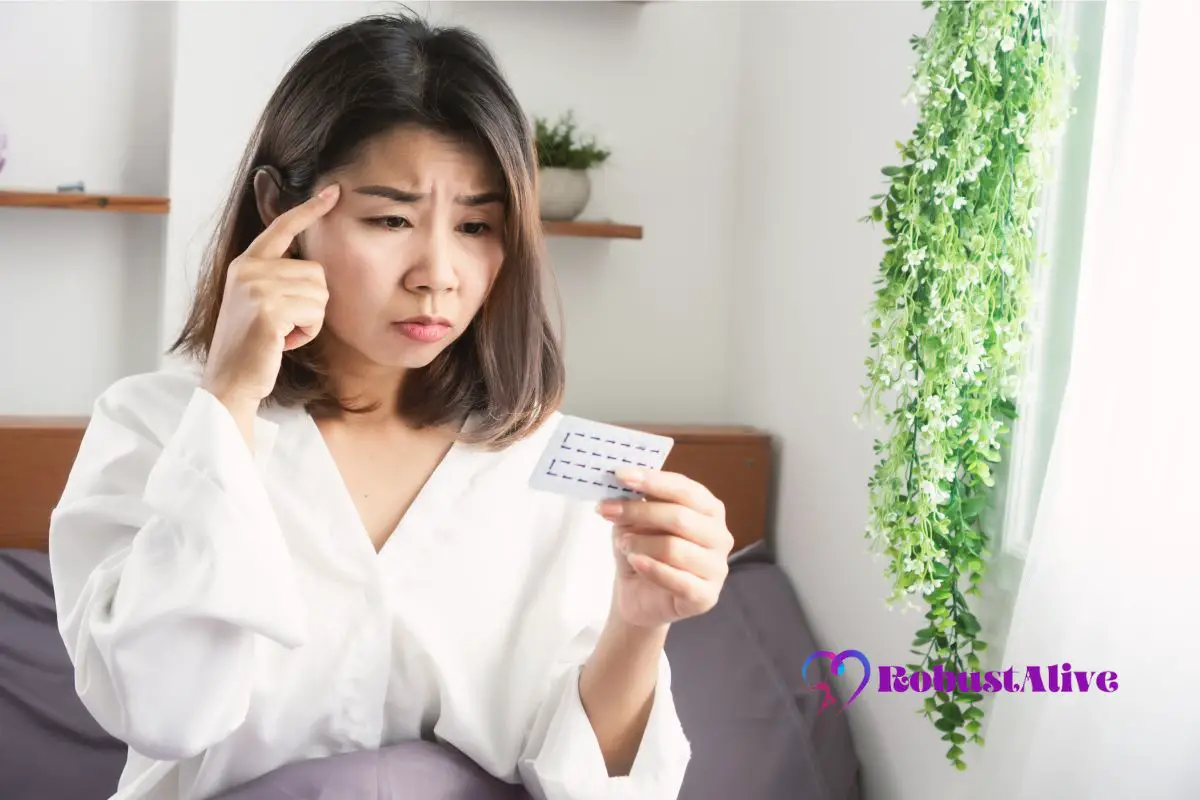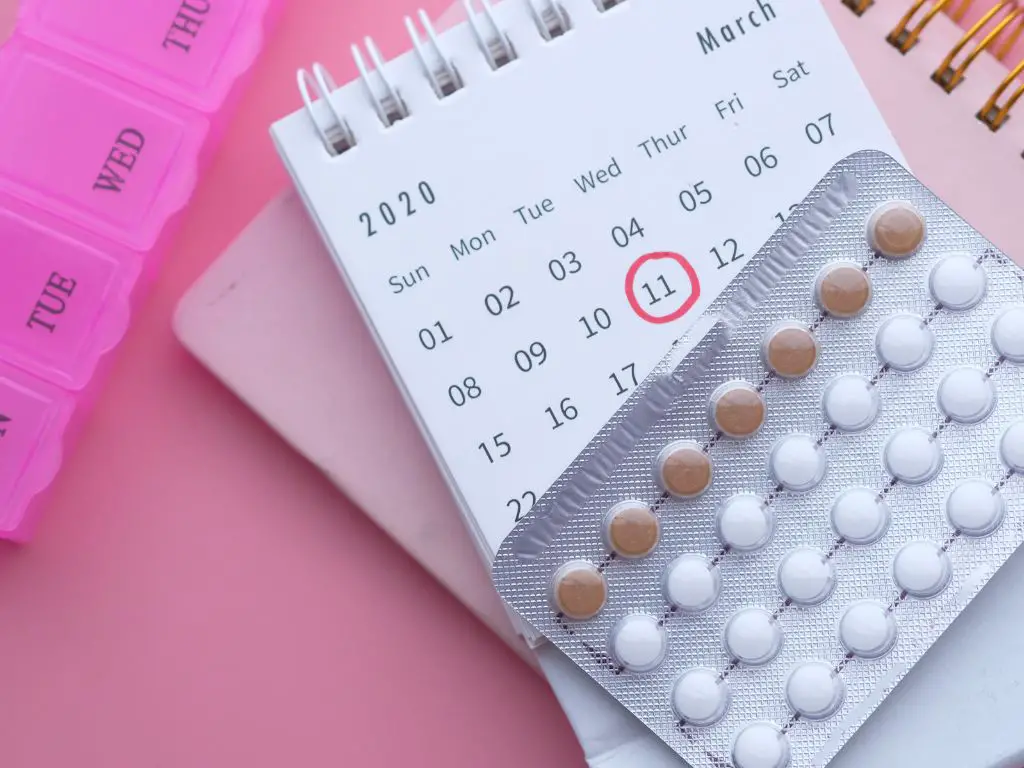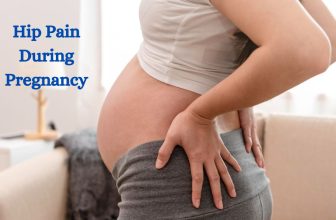Left Birth Control In Hot Car For 3 Hours

Birth control has become essential for countless individuals worldwide in managing their reproductive health and family planning. Unintentionally leaving birth control in a hot car may seem trivial, but it can have significant consequences.
So, what happens when you have left birth control in hot car for 3 hours, and what can you do after?
Exposure to high heat can make birth control less effective because the heat can change their molecular structure. This can cause the birth control to look melted, cracked, or sticky, and the packaging may be damaged. If any of these signs are observed, it is recommended to dispose of the birth control and obtain a replacement to ensure its efficacy in preventing unintended pregnancies.
This article explores the potential risks and effects of subjecting birth control to high temperatures and prolonged heat exposure. Keep reading!
What Happens to Birth Controls When They Are Exposed to High Heat?
When birth control is exposed to high heat, it can undergo changes that affect its effectiveness. Hormone-based birth control contains estrogen and/or progestin, and temperatures above 86°F (30°C) can cause alterations in the molecular structure of the medication.
This can lead to a loss of effectiveness, thereby increasing the risk of pregnancy. Planning and taking precautions to keep your birth control safe from heat exposure, including sunlight, is essential.
To prevent the adverse effects of heat on birth control, it is advisable to avoid storing or keeping it in certain conditions. For example, it should not be kept in the trunk of your car, as the temperature in the trunk can rise significantly, especially on hot days.
Similarly, it should not be stored in checked airline baggage, as the temperature in the cargo hold can also become relatively high. Additionally, birth control should be kept away from direct sunlight, as sunlight can contribute to temperature increases.
1. Humidity
Aside from heat, humidity can also impact the effectiveness of birth control. Like high temperatures, humidity can cause specific components of birth control to break down, reducing its efficacy. Storing birth control in the bathroom medicine cabinet might seem convenient, but the showers can increase the temperature and humidity levels, which can be detrimental to the medication.
The kitchen is another area to avoid, as appliance heat and moisture can expose birth control to temperature and humidity fluctuations. It is best to store birth control in a dry place away from sunlight, such as a cool and dry cabinet or drawer.
2. Extreme Cold Temperature
Furthermore, extreme cold temperatures can also affect birth control. Although most birth control can tolerate cold temperatures for short periods, exposure to temperatures below 59°F (15°C) is not recommended.
When choosing a storage spot, it’s essential to consider the time of year and the location you live in. Leaving birth control in a car, especially overnight, should be avoided. Similarly, storing it in the refrigerator is not recommended.
3. Shipping Of Birth Controls
When it comes to shipping birth control, it can generally withstand higher or lower temperatures for short periods. Shipping companies prioritize quick and safe delivery, and birth control is typically shipped under controlled temperatures until it is dispensed from the pharmacy. Manufacturers provide documentation indicating that some pills can withstand temperatures as high as 104°F (40°C) for up to 4 days and temperatures as low as 5°F (-15°C) for up to 12 months.
To ensure the safe delivery of birth control, it is recommended to follow the tracking links provided and subscribe to delivery updates. This helps to avoid situations where a package containing birth control sits in a mailbox for an extended period, especially during hot weather. By staying diligent and taking these precautions, you can help maintain the effectiveness of your birth control and reduce the risk of unintended pregnancies.
How Can You Tell If Your Birth Control Has Been Damaged By Heat?

Graphics Credit: Robustalive.com
If your birth control has been damaged by heat, there are a few signs you can look out for:
- Changes in appearance: The pills may have a different color, texture, or shape. They might appear melted, sticky, or cracked. The packaging or coating on the pills may also look damaged or distorted.
- Unusual odor: Heat exposure can cause a change in the smell of the medication. If you notice a strong or unusual odor from your birth control pills, it could be a sign of heat damage.
- Pills sticking together: Heat can cause the pills to become sticky or fuse. If the pills are clumped together and difficult to separate, it could indicate that they have been damaged by heat.
- Physical damage to the packaging: The packaging of your birth control, such as blister packs or pill containers, may show signs of heat damage. Look for any warping, melting, or discoloration of the packaging material.
If you observe any of these signs, it is best to err on caution and assume that your birth control has been compromised by heat. It is recommended to dispose of the medication and seek a replacement.
How Long Does It Take For a Parked Car to Heat Up?
The time it takes for a parked car to heat up depends on several factors, such as the outside temperature, the type of car, and its location. However, in general, temperatures inside a vehicle can rise quickly. For example, on a day when the outside temperature is around 73 degrees Fahrenheit, the temperature inside a car can reach 100 degrees in just 25 minutes, according to the National Weather Service.
When it’s hotter outside, such as when the temperature reaches 95 degrees Fahrenheit or above, the temperature inside a car parked in direct sunlight can average around 116 degrees, and some vehicles can even reach temperatures as high as 138 degrees. Even if a car is parked in the shade, it can reach temperatures around 100 degrees.
It’s worth noting that leaving medications inside a parked car, even on cooler days, can be risky because the heat can affect the medications. The sun’s rays can heat objects inside the car, and these objects then release heat that warms the air around them. Therefore, even if medications are not directly exposed to sunlight, they can still be affected by the overall heat inside the car.
What Temperatures Should Birth Controls Be Stored At?
Different forms of birth control have specific temperature requirements for proper storage. Here is a table showing the recommended temperature ranges for storing various types of birth control:
|
Birth Control Method |
Recommended Storage Temperature |
| Birth Control Pills |
68-77°F (20-25°C) |
|
Birth Control Patch |
68-77°F (20-25°C) |
| Birth Control Ring (NuvaRing) |
77°F (25°C) |
|
Birth Control Ring (Annovera) |
68-77°F (20-25°C) |
| Birth Control Shot (Depo-Provera) |
77°F (25°C) |
|
Condoms (Internal and External) |
32-100°F (0-38°C) |
- Birth control pills (combination pills and progestin-only pills): Store hormonal medications, including extended cycle, triphasic, and progestin-only pills, at temperatures between 68 to 77 degrees Fahrenheit (20 to 25 degrees Celsius).
- It is essential to keep the pills in a cool, dry place. Avoid exposing them to temperatures below 59 degrees Fahrenheit (15 degrees Celsius) or above 86 degrees Fahrenheit (30 degrees Celsius) for an extended period.
- The bathroom is not an ideal storage location due to the heat and humidity generated during showers.
- Birth control patch: The birth control patch, such as Xulane, should be stored at room temperature, between 68 to 77 degrees Fahrenheit (20 to 25 degrees Celsius).
- It is crucial not to refrigerate or freeze the patch, as extreme temperatures can affect its hormone release and make it less effective for preventing pregnancy.
- Store the patches in their original packaging until you can use them. Once the package is opened, apply the patch to your body immediately.
- Birth control ring: The NuvaRing, a flexible contraceptive ring, is typically refrigerated before distribution. However, when you have the ring at home, it should be stored at room temperature, around 77 degrees Fahrenheit (25 degrees Celsius).
- Keep the NuvaRing away from direct sunlight and avoid storing it at temperatures above 86 degrees Fahrenheit (30 degrees Celsius).
- You can store the NuvaRing for up to four months at room temperature without compromising its effectiveness.
- Annovera, another contraceptive ring lasting up to one year, does not require refrigeration. While it is not in use, keep it in its case and store it at room temperature, between 68 to 77 degrees Fahrenheit (20 to 25 degrees Celsius). Like the NuvaRing, avoid exposing Annovera to direct sunlight, extreme temperatures, or the refrigerator.
- Birth control shot (Depo-Provera): The birth control shot, or Depo-Provera, must not be refrigerated for storage. Instead, it should be stored at room temperature, approximately 77 degrees Fahrenheit (25 degrees Celsius).
- If you have an unopened vial of the shot, you can keep it upright at room temperature until you are ready to administer it. Avoid storing it in a bathroom or near the sink, as the humidity and heat from showers and baths can be detrimental.
- Condoms (internal and external): Both internal condoms (such as FC2) and external condoms should be stored in a dry environment with temperatures ranging from 32 to 100 degrees Fahrenheit (0 to 38 degrees Celsius).
- Excessive heat, humidity, and moisture can weaken condoms and compromise their effectiveness. Therefore, storing them in a cool, dry place within the specified temperature range is crucial.
- Avoid exposing condoms to extreme temperatures, such as freezing or direct sunlight, as these can damage the material.
By adhering to these recommended temperature guidelines, you can ensure that your chosen form of birth control remains effective and maintains its integrity until the expiration date. Proper storage is essential for the reliability of contraceptives in preventing unwanted pregnancies.
Precautions
To maintain the potency and effectiveness of birth control medications, it is crucial to store them correctly. Here are some key recommendations:
- Read and follow the storage instructions provided with your birth control.
- Store it in a cool, dry place away from sunlight and out of reach of children and pets.
- If carrying birth control pills in a bag or purse, ensure it is not exposed to excessive heat or sunlight. Consider using a small, discreet, and protective case designed explicitly for medication storage.
- When traveling, particularly in hot climates, take extra precautions to protect the medication. Avoid leaving birth control pills in cars, even for short periods. Instead, carry them with you in a bag or purse.
If you suspect your birth control pills may have been compromised due to heat exposure, consult a pharmacist for their effectiveness and possible alternatives.
Frequently Asked Questions (FAQs)
-
Can You Leave A Plan B In The Car?
It is not recommended to leave Plan B or any medication in a car for an extended period, especially if the temperature inside the car can become too hot or too cold. Ideally, Plan B should be stored at room temperature (68°F to 77°F or 20°C to 25°C) in a cool, dry place away from direct sunlight and moisture.
-
Are Pills Temperature Sensitive?
Yes, pills can be temperature-sensitive. Exposure to extreme hot or cold temperatures can lead to the instability and degradation of active drugs in medications, compromising their effectiveness and potentially causing adverse side effects.
-
How Many Hours Can You Forget To Take Birth Control?
If you forget to take your combined hormonal birth control pill, you have a 3-hour window to take it without significantly affecting its effectiveness. However, if more than 3 hours have passed, it is advisable to take the missed pill immediately and use a backup method of contraception for the next two days.
Conclusion
In conclusion, proper storage of birth control is vital to maintain its effectiveness. Heat exposure can alter its molecular structure, potentially reducing its efficacy in preventing unintended pregnancies.
If you have left birth control in a hot car for 3 hours and suspect any damage, consult a pharmacist for guidance and consider obtaining a replacement.





